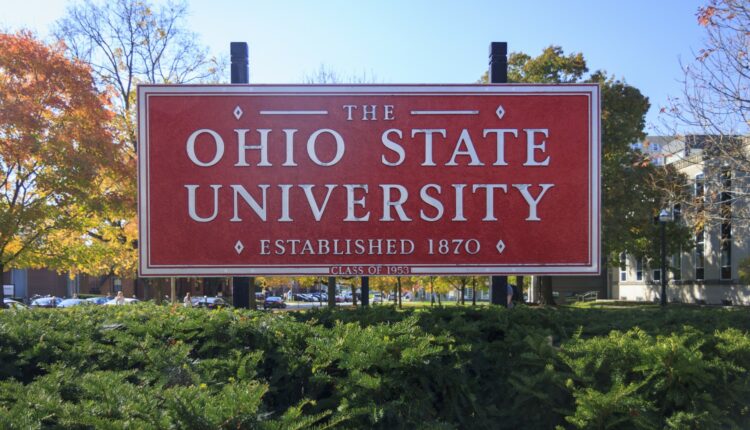Ohio State University scientist selected as HHMI Hrabowski Scholar
A scientist at The Ohio State University who studies social relationships in vampire bats has been selected as a member of the inaugural class of Freeman Hrabowski Scholars announced today by the Howard Hughes Medical Institute (HHMI).
Gerald Carter, assistant professor of evolution, ecology and organismal biology, is one of 31 early-career faculty in science who were selected for the new program based on their potential to become leaders in their research fields and to create diverse and inclusive lab environments.
Scholars will be appointed to a five-year term with the potential for renewal for a second five-year term, and each will receive up to $8.6 million over 10 years, including institutional salary and benefits, a research budget and scientific equipment. In addition, they will participate in professional development to advance their leadership and mentorship skills.
“I see this opportunity as a huge responsibility to try to live up the investment made in me and to live up to the ideals of this fellowship,” Carter said. “This is an amazing opportunity to upgrade all aspects of my career – to be a better researcher doing the best science I can do, and a mentor and adviser who provides holistic career development for the people in my lab.”
Since Carter joined Ohio State’s faculty in 2018, his lab has made several discoveries in captive and wild vampire bat communities that help explain how social structures form. Among some key findings: Vampire bats’ social bonds that are strengthened in captivity continue in the wild; vampire bats make friends through a gradual buildup of trust; and like college roommates, vampire bats bond when randomly paired.
He plans to continue studying the ecological forces, biological mechanisms and cognitive strategies that might shape how individuals create and maintain cooperative relationships, hoping to gain fundamental insights applicable to other socially complex mammals. He is currently collaborating on a project examining whether vampire bats with strong social connections live longer and healthier lives.
“In my opinion, one of the most important findings from behavioral ecology is that the psychological benefits of being socially integrated isn’t important just for humans, it’s important for other animals – these social bonds they form with other animals are really important,” Carter said. “For just about everything everyone is studying in human health, your social life has an effect even if the mechanisms are not understood – immune function, lifespan, aging, all have links to the quality of social relationships. My lab uses vampire bats to understand something about that.”
Vampire bats are also a good system for studying disease transmission. Carter has proposed developing a network that would increase understanding of how encounters between bats, the livestock they feed on, and other wildlife contribute to movement of pathogens within and between different species – in this case, not by tracing a single pathogen, but by using metagenomic sequencing to identify any and all disease-causing organisms within these communities.
“It’s basically contact tracing with animals,” Carter said.
Carter earned a PhD at the University Maryland, and was a postdoctoral fellow at the Max Planck Institute for Animal Behavior and the Smithsonian Tropical Research Institute before coming to Ohio State.
HHMI is the largest private biomedical research institution in the United States. With a commitment of up to $1.5 billion to this initiative, the institute expects to support up to 150 Freeman Hrabowski Scholars by appointing roughly 30 scholars every other year for the next 10 years. HHMI named this new program in honor of Freeman A. Hrabowski III, president emeritus of the University of Maryland, Baltimore County, and a major force in increasing the number of scientists, engineers and physicians from backgrounds underrepresented in science in the US.
“The Freeman Hrabowski Scholars program reflects HHMI’s continued commitment to supporting people, not projects,” said HHMI President Erin O’Shea. “We aim to provide scholars with the resources they need to pursue scientific breakthroughs and empower others to ask critical research questions. In this way, our scholars are well positioned to make an indelible impact on the future of science.”

